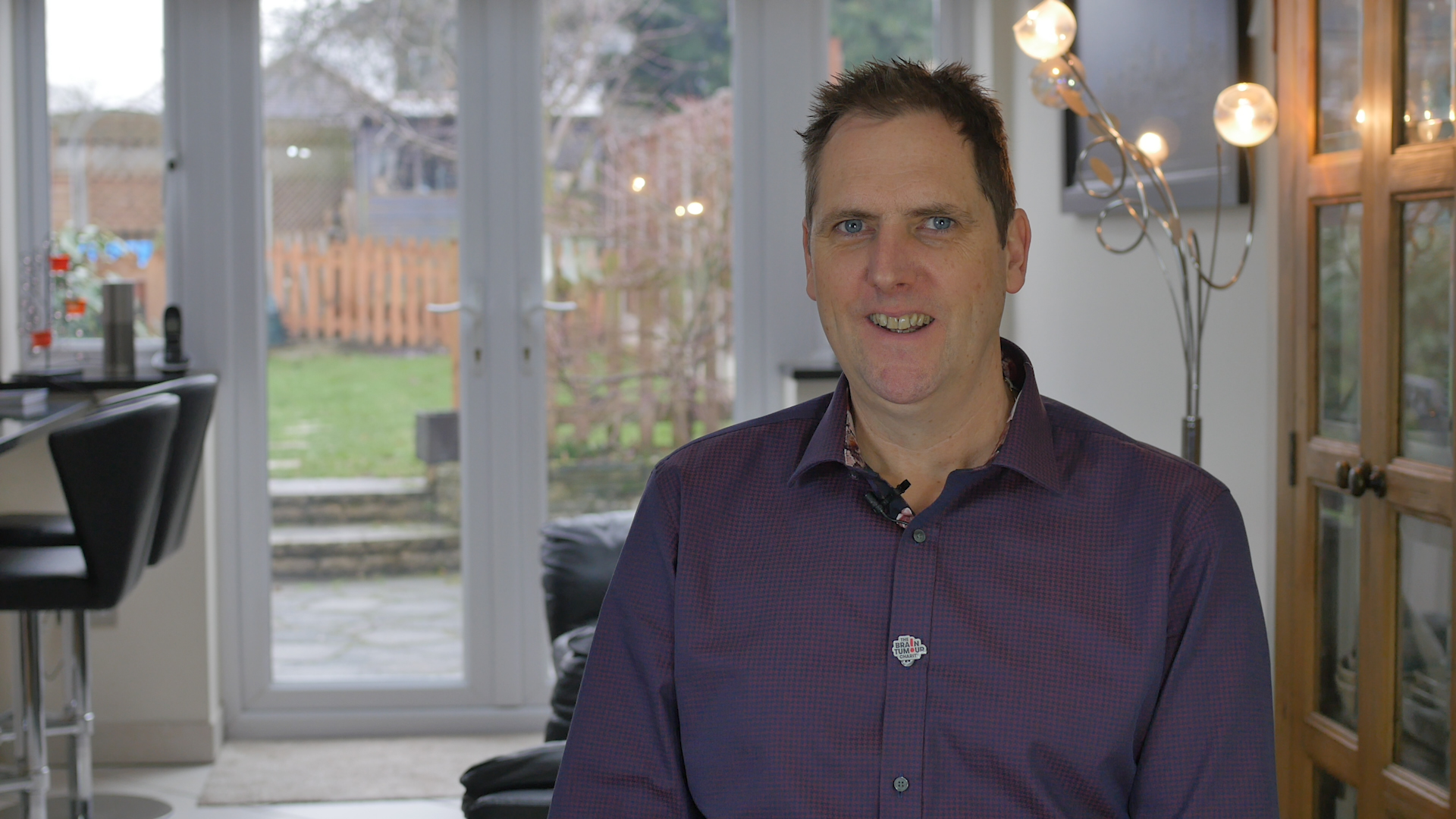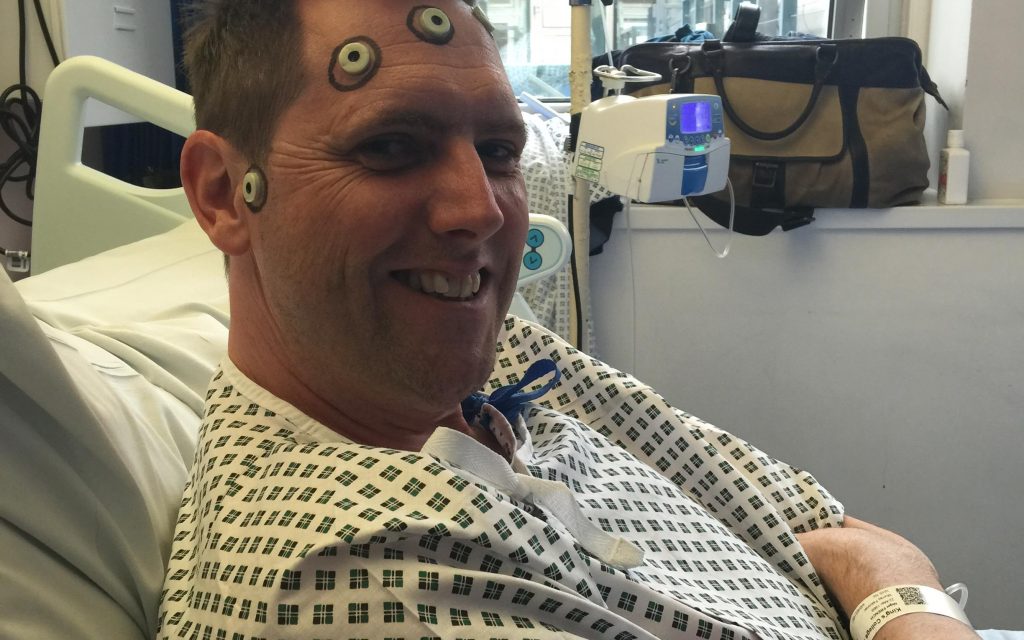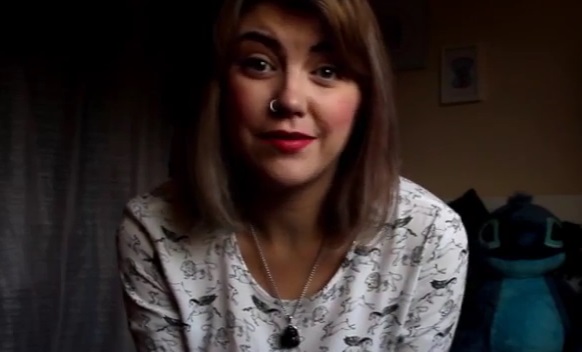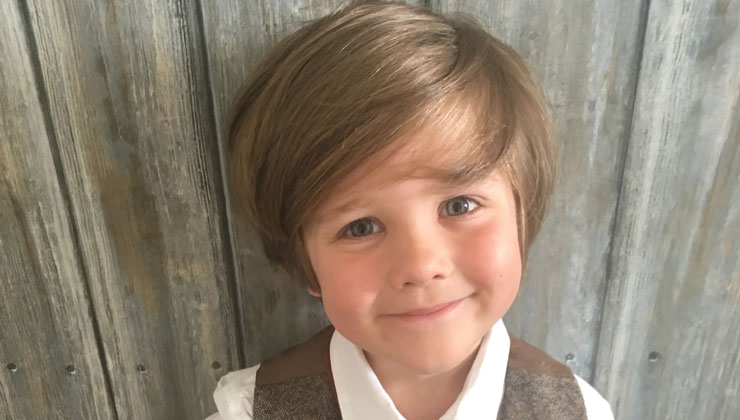Nigel's story
Nigel French, 49, was diagnosed with a glioblastoma (GBM) – an aggressive type of high grade brain tumour – in June 2015. After undergoing surgery, chemotherapy and radiotherapy, he was enrolled onto a clinical trial for a new treatment called DCVax®–L, which involved using some of his own immune cells to help fight the tumour.
After initially only sharing his news with close family and friends, Nigel ended up appearing on BBC News at Ten to discuss DCVax®–L, having rapidly changed his mind about sharing his story.

My diagnosis
My initial symptom was dull headaches, which would get worse during the day. I then had a nocturnal (sleep) seizure. I went to bed feeling ill, and the next thing I knew, my wife Sue was waking me up saying, ‘An ambulance has arrived.’
A week or so later, we saw a neurologist and I had a scan. I remember looking at the pictures of my brain and thinking, ‘That doesn’t look good, does it?’ When we saw the neurologist again, he said, ‘I’ve got bad news – you’ve got a brain tumour and you’ll need to speak to a neurosurgeon.
When you’re diagnosed and you don’t really feel ill, it’s hard to believe you’re going to die any time soon. I didn’t know anything about brain tumours or GBMs.
Sharing my story
When I was diagnosed, I sought out other people’s stories and read information online. There were some really good blogs – some quite funny – which I found a comfort. Some are good and some are bad – some scare you silly, some give you reassurance.
When I was contacted by my consultant about sharing my story through The Brain Tumour Charity, I hadn’t gone out and told many people as I didn’t really want to talk about it. It’s much easier to deny it. Only close friends and family knew. But other people would say things like, ‘How are you feeling?’, because they’d picked up on it.
Then my wife Sue said something I hadn’t thought of. She said, ‘It would be easier if everyone knew, because then we can just talk about it.’ She wanted to be able to discuss it with people. I hadn’t really thought about it like that. So that’s why I changed my mind and thought, ‘I’ll just tell the world’.

I ended up on BBC News at Ten being interviewed by Fergus Walsh. And I thought, if I was going to be on the news, I’d better tell everybody. So I did a Facebook post with all the background and said, ‘I’ll be on TV tonight’.
It was interesting, as I had customers coming in to my garage saying, ‘Oh, I saw you on BBC News last night! How are you feeling?’ It kind of unblocked conversations.
Staying positive
What I didn’t want was everyone saying, ‘Oh, are you all right?’ I didn’t want all the sympathy. For me, it’s important to stay upbeat and positive. I’ve got a much more relaxed life – I’m going on holidays. Just trying to enjoy the moment, really.
I’ve now taken up running and am taking part in the Barcelona Marathon to raise money for The Brain Tumour Charity. I want to raise as much money as possible for research, so that more people like me can face the future with hope.

Tell us your story
Tell us about your experiences with brain tumours

Clare's story
Clare and her husband decided to donate their daughter Olivia's brain to research.

Rosie's story
Seeing a HeadSmart card and recognising the symptoms in her son saved his life
Support and Information Services
Research & Clinical Trials Information
You can also join our active online community.